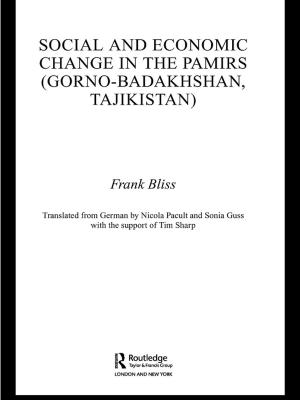Pre-Colonial Africa in Colonial African Narratives
From Ethiopia Unbound to Things Fall Apart, 1911–1958
Fiction & Literature, Literary Theory & Criticism| Author: | Donald R. Wehrs | ISBN: | 9781317076292 |
| Publisher: | Taylor and Francis | Publication: | April 8, 2016 |
| Imprint: | Routledge | Language: | English |
| Author: | Donald R. Wehrs |
| ISBN: | 9781317076292 |
| Publisher: | Taylor and Francis |
| Publication: | April 8, 2016 |
| Imprint: | Routledge |
| Language: | English |
In his study of the origins of political reflection in twentieth-century African fiction, Donald Wehrs examines a neglected but important body of African texts written in colonial (English and French) and indigenous (Hausa and Yoruba) languages. He explores pioneering narrative representations of pre-colonial African history and society in seven texts: Casely Hayford's Ethiopia Unbound (1911), Alhaji Sir Abubaker Tafawa Balewa's Shaihu Umar (1934), Paul Hazoumé's Doguicimi (1938), D.O. Fagunwa's Forest of a Thousand Daemons (1938), Amos Tutuola's The Palm-Wine Drinkard (1952) and My Life in the Bush of Ghosts (1954), and Chinua Achebe's Things Fall Apart (1958). Wehrs highlights the role of pre-colonial political economies and articulations of state power on colonial-era considerations of ethical and political issues, and is attentive to the gendered implications of texts and authorial choices. By positioning Things Fall Apart as the culmination of a tradition, rather than as its inaugural work, he also reconfigures how we think of African fiction. His book supplements recent work on the importance of indigenous contexts and discourses in situating colonial-era narratives and will inspire fresh methodological strategies for studying the continent from a multiplicity of perspectives.
In his study of the origins of political reflection in twentieth-century African fiction, Donald Wehrs examines a neglected but important body of African texts written in colonial (English and French) and indigenous (Hausa and Yoruba) languages. He explores pioneering narrative representations of pre-colonial African history and society in seven texts: Casely Hayford's Ethiopia Unbound (1911), Alhaji Sir Abubaker Tafawa Balewa's Shaihu Umar (1934), Paul Hazoumé's Doguicimi (1938), D.O. Fagunwa's Forest of a Thousand Daemons (1938), Amos Tutuola's The Palm-Wine Drinkard (1952) and My Life in the Bush of Ghosts (1954), and Chinua Achebe's Things Fall Apart (1958). Wehrs highlights the role of pre-colonial political economies and articulations of state power on colonial-era considerations of ethical and political issues, and is attentive to the gendered implications of texts and authorial choices. By positioning Things Fall Apart as the culmination of a tradition, rather than as its inaugural work, he also reconfigures how we think of African fiction. His book supplements recent work on the importance of indigenous contexts and discourses in situating colonial-era narratives and will inspire fresh methodological strategies for studying the continent from a multiplicity of perspectives.















